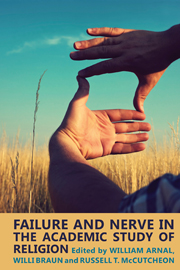Preface
Summary
A sower went out to sow. And as he sowed, some seed fell along the path, and the birds came and devoured it… And other seeds fell into good soil and brought forth grain, growing up and increasing and yielding thirtyfold and sixtyfold and a hundredfold.
(Mark 4:3–4, 8)Using Donald Wiebe's programmatic 1984 essay as its organizational center, this collection of new essays further documents, refines, and examines his thesis that the academic study of religion suffers from a failure of intellectual nerve. When judged by the efforts of those who are today commonly recognized to be the late nineteenth-century founders of the field, this failure comprises an unwillingness to continue to distinguish sharply comparative religion, as pursued in the modern research university, from confessional, even broadly humanistic, studies that ought to be carried out only in denominationally affiliated institutions. In further documenting this problem—over twenty-five years after Wiebe first diagnosed it and now doing so at a far wider variety of sites across the field—the contributors press Wiebe's original case considerably further, both in terms of adding new evidence to the argument and greater nuance to its force. The contributors to this volume therefore all share the view that conceptualizing religion as an element of the mundane world of human doings is the first requirement of a public inquiry into the history and function of religion. Additionally, they are all in agreement that this requirement has consistently not been met.
- Type
- Chapter
- Information
- Failure and Nerve in the Academic Study of Religion , pp. vii - ixPublisher: Acumen PublishingPrint publication year: 2012



